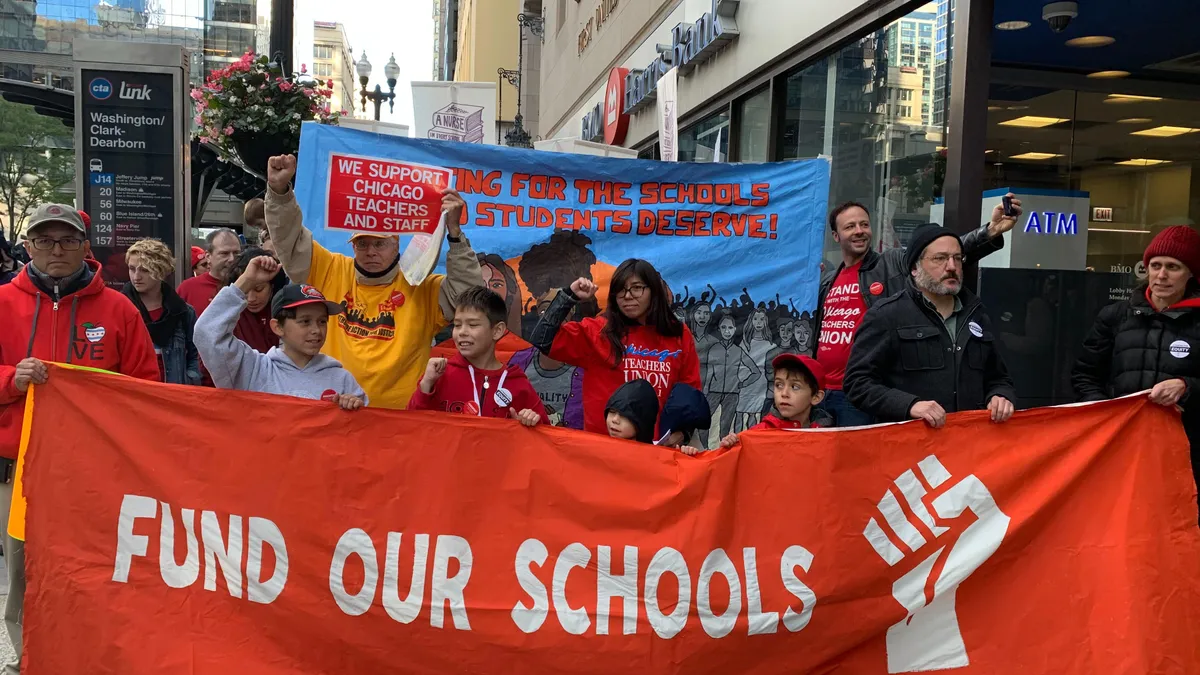Dive Brief:
-
A Raise Your Hand Texas poll modeled after the national PDK Poll of the Public’s Attitudes Toward the Public Schools found 77% of Texans have confidence in and appreciate their teachers, higher than the national average of 61%. But 60% are not convinced standardized tests are an effective measure of students’ learning.
-
The poll also found 93% of Texans believe teacher quality is extremely important for school quality, with 71% saying teachers are undervalued in society, 70% saying their pay is too low, and 59% believing their own community’s school system is underfunded.
-
Respondents rated their own districts higher, which reflects a national trend. Texans gave their oldest child’s school an A or B rating, which is slightly higher than the national average of 44%.
Dive Insight:
More residents of red states like Texas are speaking up to support teachers and public schools, a trend that could threaten Republicans’ influence on those parts of the country. In 2018 in Chandler, Arizona, hundreds of parents and students joined teachers protesting for higher salaries and more school funds. Some of these parents typically vote Republican, but say they are disappointed in their own local Republican party over education.
Likewise, a recent PDK poll found 84% of parents would support a teacher strike over school funding. However, only 58% of teachers say they would vote to strike over school funding, which reflects educators’ frustration with the profession. Sixty percent of teachers say teacher pay is unfair, and just 52% say they feel valued "a good amount or a great deal."
Legislators in some red states appear to be in retaliation mode. The Red for Ed movement started in West Virginia when teachers walked out of class over low pay and sparse class resources, even though such strikes are illegal in that state. Teachers in other red states such as Oklahoma, Arizona and Colorado soon joined the cause.
Their actions led to legislation that supported teachers, but now Republican-led legislators in some states are moving to retaliate, according to The Washington Post. For instance, in West Virginia, pay raises and health-care funding would be connected to increased class sizes, no pay during strikes and support for “school choice” options like charter schools and programs that use public money for private and religious schools.













